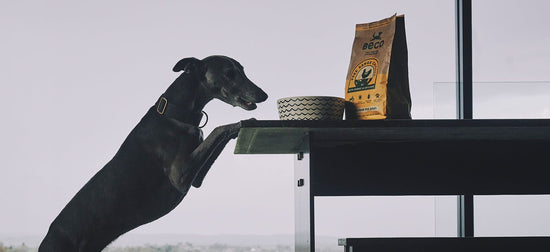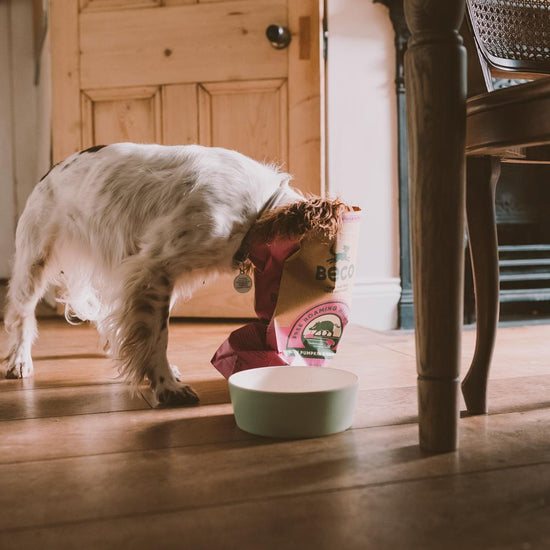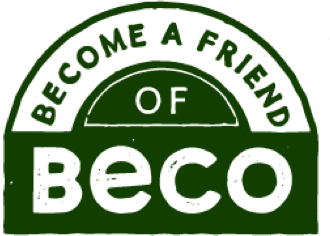If you’ve got an overweight dog, you might be feeling the pressure to help them lose the extra pounds.
Choosing the right food for your overweight dog can be a challenging task, given the wide range of options available. It's crucial to find a balance between satisfying their nutritional needs and supporting weight loss. We’ve spent time looking into the best options on the market.
Our Top 3
Best Weight Management Dog Foods
We've thoroughly examined the market to identify the top contenders in Best Weight Management Dog Foods, focusing on quality, nutritional balance, and effectiveness in supporting your furry friend’s weight management.
Here are our top 5 best dog foods for weight management picks in the UK:
1. Wild Caught Cod & Haddock with Kale & Chickpeas
Our premium, responsibly sourced, cod and haddock recipe is a low calorie meal, with only 10% crude fat. Nutritionally balanced, it is ideal for those dogs trying to lose a bit of weight.
With the addition of kale and chickpeas, your dog will benefit from additional sources of fibre and protein, as well as antioxidants and vitamins to support their immune system. Delicately slow cooked, every bite will contain the same protein, vitamins, oils, and flavours of the original ingredients. It also comes in a convenient dry food format, but there is no compromise on nutrition or taste.
Pros:
High in omega-3 fatty acids for joint and skin health
Grain-free
Includes superfoods like kale and chickpeas for added nutrition
10% crude fat
Cons:
- Fish flavour might not be appealing to all dogs
Our rating: 5/5
Price: £19.99 (2kg)
2. Pooch & Mutt Slim & Slender Dry Food
Recommended by vets, Pooch & Mutt’s Slim & Slender dry food is specifically formulated for overweight dogs.
Packed with active ingredients, it contains 45% lean free-run chicken which offers a low-fat protein source rich in fat burning l-carnitine. With only 12% crude fat, this food is also high in fibre as well as containing additional weight loss supplements such as CLA. To offer your dog’s joints support, Slim & Slender also contains glucosamine and chondroitin.
Pros:
Subscribe and save 25% offer
Contains L-carnitine to aid in fat metabolism
Supports joint health, important for overweight dogs
Cons:
Higher crude fat content than other brands
Some dogs may prefer a wet food diet
Our rating: 3/5
Price: £15.99 (2kg)
3. Lily’s Kitchen Lean Machine
Fuel your dog with this low calorie wet food offering from Lily’s Kitchen that contains just 4% crude fat per serving.
Freshly prepared, this low fat recipe contains a tasty turkey and squash combo that doesn’t compromise on taste, just the calories. As you would expect, the nutrition isn’t lacking either. With plenty of fruit, veggies, and even quinoa added to the dish your dog will benefit from the dietary fibre, protein, iron, and vitamins that are within this food.
Pros:
Only 4% crude fat
Packed with fruit and vegetables for additional vitamins and nutrients
Wet food offering
Cons:
Higher cost per meal
May not be suitable for all dietary needs
Our rating: 4/5
Price: £1.60 (1 x 150g tin)
4. Barking Heads All Hounder Fat Dog Slim
Barking Heads’ Fat Dog Slim is a freshly-prepared chicken recipe with 30% less fat and added glucosamine and chondroitin, which helps to manage weight and keeps joints strong.
Rich in slow-release carbs, thanks to the addition of oats, your dog will feel fuller for longer. The recipe also contains l-carnitine to help support weight loss and prebiotics which aid digestion and help your dog to absorb all the goodness from their food.
Pros:
9.5% crude fat content
Uses free-run chicken
Includes glucosamine and chondroitin for joint support
Cons:
Some dogs may require a grain-free diet
Only available in large pack size
Our rating: 2/5
Price: £75.19 (£12kg)
5. Edgard & Cooper Fresh Free Run Chicken
Edgard & Cooper’s fresh, free-run chicken recipe offers a grain-free, high quality protein meal with no dried or dehydrated meat.
Easy to digest, this dry dog food has an 18% crude fat content but also contains prebiotics to support gut health. The recipe is blended with a super-healthy mix of fruit and veg including strawberries, which are rich in vitamins c and k as well as potassium, and blueberries which contain more antioxidants than most other fruits.
Pros:
High protein content from fresh free-run chicken
Added prebiotics for gut health
Multiple pack size options
Cons:
- Higher crude fat percentage
Our rating: 3/5
Price: £7.99 (0.7kg)
Dog Weight Management Food Summary
| Food Option | High in Omega-3 | Grain-Free | Includes Superfoods | Supports Joint Health | Crude Fat Content | Price | Our Rating |
|---|---|---|---|---|---|---|---|
| Wild Caught Cod & Haddock with Kale & Chickpeas | ✓ | ✓ | ✓ | ✓ | 10% | £19.99 (2kg) | ★★★★★ |
| Pooch & Mutt Slim & Slender Dry Food | ✕ | ✓ | ✕ | ✓ | 12% | £15.99 (2kg) | ★★★☆☆ |
| Lily’s Kitchen Lean Machine | ✕ | ✓ | ✓ | ✕ | 4% | £1.60 (1 x 150g tin) | ★★★★☆ |
| Barking Heads All Hounder Fat Dog Slim | ✕ | ✕ | ✕ | ✓ | 9.5% | £75.19 (12kg) | ★★☆☆☆ |
| Edgard & Cooper Fresh Free Run Chicken | ✕ | ✓ | ✓ | ✕ | 18% | £7.99 (0.7kg) | ★★★☆☆ |
What Food is Best for Dogs to Lose Weight?
Selecting the optimal diet for your dog's weight loss is pivotal. As we’ve already mentioned, striking a balance is key. Whilst you will want to reduce the calorie intake of your dog, you will want to ensure they still receive all of the essential nutrients they require to avoid deficiencies.
Here’s what you’ll need to look for:
Nutrient and Caloric Density
When it comes to weight loss, the quality of calories matters just as much as the quantity. It's important to choose dog foods that are specifically formulated for weight loss. These foods are designed to be low in calories but high in essential nutrients, ensuring your dog gets everything they need without excess calories.
This means they can still enjoy a full, satisfying meal without the risk of weight gain. Look for foods that mention they are tailored for weight loss and provide a complete nutrient profile to support your dog's overall health.
Some examples of foods you could include are:
Lean proteins such as chicken breast, turkey, and lean beef.
Complex carbohydrates including sweet potatoes, pumpkins, and peas offer energy without spiking blood sugar and are lower in calories.
Whole grains like brown rice, barley, and oats are rich in nutrients and help your pup feel fuller for longer.
High Fibre and Low Fat
A diet high in fibre and low in fat is crucial for dogs looking to shed excess weight. High-fibre foods help maintain a sense of fullness after meals, which can reduce the urge for excessive feeding or the need for snacks between meals.
Fibre has the added benefit of being low in calories, as it is not digested and absorbed in the same way as other nutrients. Reducing fat intake is essential since fat is the most calorie-dense nutrient.
Choosing dog foods that are lower in fat means you can significantly cut down on the number of calories your dog consumes, making it easier to achieve a calorie deficit necessary for weight loss. Here are some key ingredients to look out for:
Vegetables such as broccoli, carrots, and green beans, as these are low in calorie and high in fibre, meaning you can add bulk to meals without adding fat.
Fruits, including apples, berries, and pumpkin, will add sweetness and fibre.
Legumes, such as lentils and chickpeas, which are good sources of protein and fibre, as well as being low in fat.
Therapeutic L-Carnitine Levels
L-carnitine is an amino acid that plays a critical role in the metabolism of fats. It helps to transport fatty acids into the mitochondria, where they can be burned for energy.
Including foods in your dog's diet that are supplemented with L-carnitine can support more efficient fat metabolism, helping your dog to lose weight while maintaining lean muscle mass. This ingredient is particularly beneficial for overweight dogs, as it aids in converting their fat reserves into usable energy.
Consider food sources such as:
Lean meats like chicken and turkey are naturally higher in L-carnitine.
Fish, such as cod, salmon, and trout, have natural L-carnitine and omega-3 fatty acids.
Antioxidants
Antioxidants are compounds that help to neutralise free radicals, reducing oxidative stress and promoting overall health.
For overweight dogs, antioxidants are especially beneficial as they can help combat the increased inflammation often seen in obesity. Diets rich in antioxidants support the immune system, protect against cell damage, and may even improve the overall well-being of your dog.
Foods that contain antioxidants include:
Berries, like blueberries and raspberries, are high in antioxidants which help fight inflammation and can support overall health.
Vegetables such as spinach, kale, and sweet potato are rich in vitamins and antioxidants. They support immune health and can reduce inflammation.
Some dog foods include antioxidant-rich supplement ingredients like vitamins E and C, selenium, and beta-carotene to help support health during weight loss.
How to Put Your Dog on a Diet
Starting a weight management journey for your dog requires a structured approach to ensure it’s both safe and effective. Achieving the ideal weight for your pet involves careful planning and ongoing adjustments based on their progress.
Understanding Caloric Needs and Setting a Target Weight
The foundation of any diet plan is determining how many calories your dog needs each day. This process begins with an evaluation of your dog's current weight compared to their ideal weight, taking into account factors like breed, age, activity level, and any existing health conditions.
Your vet is essential in this phase; they can provide a tailored calorie recommendation based on the goal of losing no more than 2% of your dog's body weight per week. A slower rate of 0.5% is considered the minimum to ensure the weight loss is gradual and healthy.
Steps to Initiate the Diet Plan
Weigh your dog to establish a starting point for their weight management plan.
Discuss with your vet what a healthy weight looks like for your dog, considering their specific needs and characteristics.
Your vet will calculate the number of calories your dog should consume each day to safely lose weight, ensuring they still receive all necessary nutrients.
Choose a diet that fits the caloric and nutritional recommendations made by your vet, focusing on high-quality, weight-management dog food.
Consistency is key. Set regular feeding times and stick to them to help control portions and prevent overfeeding.
Monitoring Progress
Regular check-ups with your vet are crucial. These bi-weekly weigh-ins for the first couple of months allow you to see how well the diet is working and make any necessary adjustments.
During these visits, your vet can reassess your dog's calorie needs and diet plan based on their weight loss progress, ensuring that they are losing weight at a healthy rate and not experiencing any adverse health effects from their new diet.
What to Consider When Choosing Dog Food for Weight Management
We’ve already given you our tried and tested top 5 dog foods for weight management, but to get a true understanding of why they are so good, you’ll need to look at the critical factors to bear in mind when choosing.
Each of the following aspects plays a significant role in ensuring the food you choose aligns with your dog's health requirements and weight management goals.
Consult Your Vet
The first step in any dietary change, especially for weight management, should be a consultation with your veterinarian.
A vet can provide a professional assessment of your dog's current health status and weight, offer insights on the amount of weight your dog needs to lose or gain, and recommend specific types of food or dietary strategies. This professional guidance is invaluable in setting the right course for your dog’s nutritional needs.
High-Quality Protein
Proteins are the building blocks of a healthy diet, but not all proteins are created equal. For effective weight management, prioritise dog foods that contain high-quality, animal-based proteins.
These proteins are more bioavailable to dogs and support lean muscle maintenance even in a calorie-restricted diet. High-quality proteins also ensure your dog feels fuller for longer, reducing the urge to overeat.
Low Carb Content
A diet low in carbohydrates can be beneficial for dogs trying to lose weight. Carbohydrates, especially simple carbs, can lead to unnecessary weight gain or hinder weight loss efforts because they are often high in calories but low in nutritional value.
Look for foods that are formulated with complex carbohydrates like vegetables and whole grains, which provide energy and fibre without an excessive calorie count.
Appropriate for Age and Breed
Dogs have different nutritional needs depending on their age, breed, and size. Puppies, for example, require diets rich in calories and nutrients to support their rapid growth, while senior dogs may need fewer calories to prevent weight gain due to a slower metabolism.
Additionally, some breeds are predisposed to weight gain and may benefit from specific dietary formulations. Ensure the food you choose is tailored to your dog's specific life stage and breed requirements.
Read Labels Carefully
When shopping for dog food, paying close attention to the labels can make a big difference. Foods that are specifically labelled for "weight management" or "weight control" are formulated to have fewer calories while still providing all the necessary nutrients.
These labels also indicate that the food has been designed with the goal of supporting a healthy weight, which can include higher fibre content for fullness and controlled fat levels.
What Ingredients Should Be Avoided
When selecting a dog food for weight management, it's crucial to know which ingredients could undermine your efforts. Certain components may not only impede weight loss but can also pose health risks to your dog. Understanding these can help you make healthier choices for your furry friend.
Corn Syrup and Artificial Colours
Corn syrup, a form of sugar, can lead to unnecessary weight gain and potentially cause diabetes in dogs. It's often used in pet foods as a sweetener to make the product more appealing but offers no nutritional value.
Similarly, artificial colours are added solely for aesthetic purposes, to make the food look more appealing to pet owners. These artificial additives can contribute to behavioural issues and allergies in dogs, with no benefit to their health or wellbeing.
BHA, BHT, and Ethoxyquin
BHA (Butylated Hydroxyanisole), BHT (Butylated Hydroxytoluene), and Ethoxyquin are chemical preservatives used to extend the shelf life of dog food, however, these substances have been linked to potential health risks, including cancer.
While they might keep dog food from spoiling, they do not contribute to your dog's health and may even harm it in the long run. Opting for dog foods preserved with natural alternatives, like vitamin E (tocopherols), is a safer choice.
Rendered Fat
Rendered fat is often added to pet foods to enhance taste but it is a vague term that can refer to fats from various sources, not all of which are healthy.
This fat can include unhealthy trans fats and potentially introduce toxins into your dog's diet, as the exact source of the fat is not always clear. Rendered fat can also lead to an excessive intake of calories, which is counterproductive in weight management diets.
Propylene Glycol
Propylene Glycol is used in some dog foods as a moisture retainer and to prevent bacteria growth, however, it's a chemical also found in antifreeze. While the food-grade version is deemed 'generally recognised as safe for human consumption, and some scientific studies have shown that it has no adverse effect in dogs that consume it, there have been some instances where it has been linked to health issues, such as blood disorders.
Frequently Asked Questions (FAQs)
How Can I Enhance My Dog’s Weight Loss Through Exercise?
Beyond diet control, increasing your dog's physical activity is essential. Consult your vet for a tailored exercise plan, aiming for gradual weight loss without risking health.
How Do I Maintain My Dog's Weight Loss?
After reaching the target weight, continue monitoring your dog’s weight monthly and adjust their diet to maintain the ideal weight, keeping treats to less than 10% of their total caloric intake.
Leaner Leads
Choosing the right dog food for weight management boils down to understanding your dog's nutritional needs, opting for foods rich in quality proteins and low in unnecessary fats and carbs. Regular vet consultations and careful monitoring of your dog's weight progress are key to a successful weight management plan, ensuring a healthier lifestyle for your pet.
For more nutritionally packed, dry dog foods that can help support your dog’s health, explore our range here.














